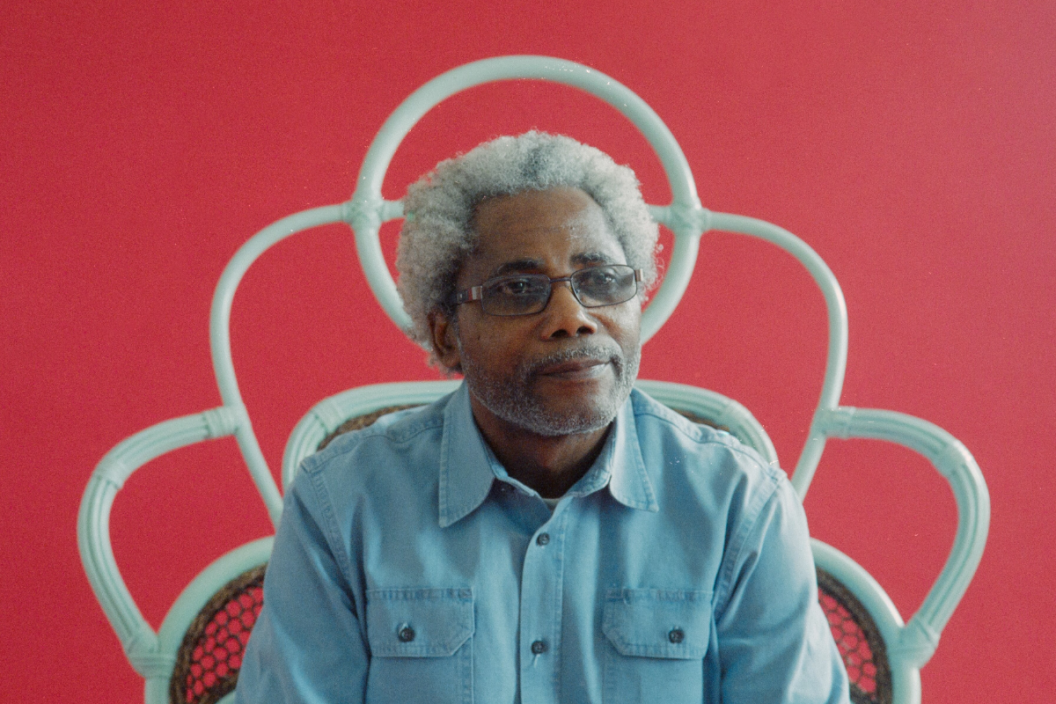While there's a lot of feel-good stories in music, few of them epitomize the American dream as much as that of Peter One. The 67-year-old native of Africa's Côte d'Ivoire found success in his homeland in the 1980s with his album Our Garden Needs Its Flowers. That led to playing stadium shows across the country and even served as the soundtrack to Nelson Mandela's 1990 jail release.
Born Pierre-Evrard Tra, he eventually moved stateside in 1995 to escape rising political unrest back home and to expand his musical horizons. While he was able to escape to safety, his musical ambitions largely dried up — until now. Nearly 30 years after emigrating, he's seeing his musical dream come back into view with the release of Come Back To Me on May 5 via Verve Records.
"It wasn't easy, but mentally I was ready to start over," Peter tells Wide Open Country about his decision to move to America. "The United States is a big country with millions of great musicians, many of whom are hardly known. I knew it wasn't going to be easy, but I'm always optimistic. I knew I could find my way, because if I don't try, I've already lost from the start."

Provided by artist
Upon his move, Peter — who had worked back home as a high school history teacher — attended and earned a master's degree from the University of Delaware. He had plans to teach in college before pivoting to nursing due to the flexibility it provided him both with his schedule and where he could work. All the while, his creative aspirations never slowed as he built a home studio, constantly wrote and workshopped new material.
A few years after moving to Nashville, all hope seemed to be lost — until, one day in 2018, he received an email proposing a re-issue of his breakthrough 1985 album. It was an offer he couldn't pass up, and one that ultimately led to his resurgence.
"It was like bringing something back from the dead, but it was also a good opportunity that I couldn't pass up," Peter says.
Now four years removed from when the recording process began, Come Back To Me has been released, and it's already making waves. Peter was recently able to open a slew of tour dates across the Southeast for Jason Isbell, helping to introduce him and his music to new, attentive audiences for the first time in decades. The album is a melting pot of culture, as Peter mixes his native languages of Guro and French with English to paint vibrant vignettes about his life's journey and the emotions of being thousands of miles from home.
According to him, the mix of languages helps him to express himself fully and cast a wide net with his music's reach.
Related Content
"When I first started playing music, my idea was that I wanted my work to travel far outside the small box of the Ivory Coast, and English is the best language to help do that," Peter says. "It may not be the most spoken language in the world, but it is the most widespread. I have the ability to sing for my tribe in Guro, my country in French and English for the rest of the world, so why not try to take advantage of it all at the same time?"
Comprising 10 tracks, Come Back To Me's songs span in age from a few years to a few decades. The oldest is "Bonne Annee," a ditty Peter wrote in 1980 for a national television appearance to ring in the new year back home. Translating to "Happy New Year," the song takes on a happy, celebratory tone similar in nature to the title track "Cherie Vico." Meaning "Come Back To Me" in English, the latter is the album's newest track, with roots only dating back to 2018 when the process for the album first began.
A love song at heart, the ballad has taken on extra significance in recent years with his musical reawakening to have the dual meaning of not only a lost love but also his creative dreams coming back to him.
"We thought it'd be a good album title because my whole career I've been searching for the greatest stage before the whole world," Peter says. "I had it briefly, but it was short-lived. I still wish to have it, and the doors may be opening back up for that now. It's almost like my dream is starting to come back to me."
Despite the album starting off on a happy note, much of its content after that veers into the dark. A prime example lies within songs such as "On My Own" and "Birds Go Die Out Of Sight (Don't Go Home)," a track featuring Allison Russell that explores the myriad emotions that floored Peter when he found out his best friend who also emigrated had left for home without warning.
"I kept telling him not to rush it because you're still struggling here and need more time to get stable before trying to return," Peter says. "But for some reason, he left without notice. Before I knew it, he was gone and has since passed on. This song is about him and the heartbreak I felt when I learned he was gone."
Through the good and bad, one constant for Peter has been music. Now a U.S. citizen, he sees it as a vehicle to communicate his truth to the world while also chasing his dream and providing hope to others in similar situations around the world that they, too, can break out and find success. It certainly hasn't been easy — but, as Peter says, he wouldn't have it any other way.
"Music has taught me that if you want something, you have to work hard for it," Peter says. "If you stay consistent, chances are you can achieve it. You also need to be doing it because you love it and not just to make money or get rich. Music has given me honor in myself because I'm able to share it with other people instead of keeping it all to myself."
READ MORE: ISMAY's 'Stranger in the Barn' is a Folktale Inspired by Ranch Life [Premiere]




